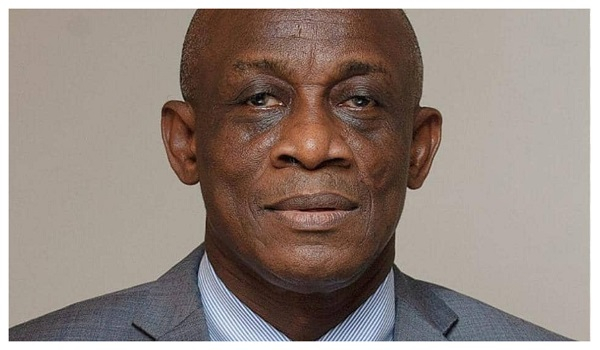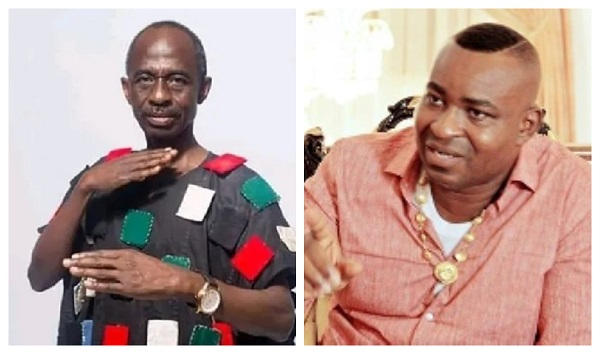Gov. JB Pritzker testifies before Congress about Illinois sanctuary laws amid national immigration crackdown - CBS Chicago
Gov. JB Pritzker on Thursday defended Illinois' sanctuary laws protecting undocumented immigrants at a hearing before Congress, while accusing President Donald Trump of "abuses of power" by deploying the military to Los Angeles in response to protests against his administration's immigration crackdown.
Pritzker was joined by Minnesota Gov. Tim Walz and New York Gov. Kathy Hochul. The governors were called to testify before the House Oversight and Government Reform Committee by its Republican chairman Rep. James Comer, of Kentucky, in April.
"Let me be clear, sanctuary policies do not protect Americans. They protect criminal illegal aliens," Comer said at the beginning of Thursday's hearing. "Congress must consider whether to defund every single penny of federal dollars going to cities and states that prioritize criminal illegal aliens over the American people."
Pritzker defended Illinois' sanctuary laws, saying, "Illinois follows the law, but we expect the federal government to follow the law as well."
"Safe and compassionate immigration policies, I believe, are vital. In fact, my own family owes everything to this country accepting a young refugee named Nicholas Pritzker to its shores over a century ago," he said. "As I have consistently said, violent criminals have no place on our streets, and if they are undocumented, I want them out of Illinois and out of our country."
Pritzker and the other governors repeatedly said that it is up to the federal government to enforce immigration laws, not state or local law enforcement agencies.
They also repeatedly criticized the Trump administration for deploying thousands of National Guard troops and hundreds of U.S. Marines in Los Angeles amid ongoing protests against U.S. Immigration and Customs Enforcement raids in L.A., over the objections of local officials and California Gov. Gavin Newsom.
Pritzker said any acts of violence during those protests are unacceptable, but he accused the Trump administration of exacerbating the situation by calling in the military despite local law enforcement saying they had the situation under control.
"It's wrong to deploy the National Guard and active-duty Marines into an American city over the objections of local law enforcement just to inflame a situation and create a crisis, just as it's wrong to tear children away from their homes and their mothers and fathers who have spent decades living and working in our communities, raising their families," he said. "We will not participate in abuses of power. We will not violate court orders. We will not ignore the Constitution. We will not defy the Supreme Court. We will not take away people's right to peacefully protest. We also respect and expect this administration to respect the traditions and legal precedents that dictate how and when our National Guard and military are deployed," he said.
Pritzker said he has deployed the National Guard before in Illinois during his time as governor, but only in coordination with local law enforcement.
"When the President of the United States is calling out your National Guard over the top of local law enforcement saying that they don't need it, that they have things under control, it tends to have an inflaming effect on what's going on on the ground just when local law enforcement officials are getting things under control, and I think that's what we saw in Los Angeles," Pritzker said. "The president of the United States fails, fails. Why? Because he wants mayhem in the streets. Why did he call in the Marines?"
The governors also pushed back on threats from White House "border czar" Tom Homan, who has suggested in the past that elected officials could be arrested if they are found to have impeded ICE.
"I can say, first of all, that he can try. I can also tell you that I will stand in the way of Tom Homan going after people who don't deserve to be frightened in their communities, who don't deserve to be threatened, terrorized. I would rather that he came and arrested me than do that to the people of my state," Pritzker said.
Pritzker and the other governors also criticized President Trump for revoking a policy that prohibited arrests by U.S. immigration agents at or near schools, places of worship and other places deemed to be "sensitive locations."
"Under President Trump, ICE showed up in Chicago nearly immediately, and began terrorizing our neighborhoods, our schools, and parents. Indeed, many parents felt like they needed to go into hiding, even though their children needed to go to school every day," he said.
Comer started the hearing by accusing Pritzker and the other governors of allowing "criminal illegal aliens to roam free in American communities." Comer displayed a photo of Katie Abraham, one of two people killed in a suspected drunk driving crash in downstate Illinois earlier this year. Police charged an undocumented Guatemalan national in the crash.
Pritzker said he believes anyone who commits a crime should be prosecuted and convicted, regardless of their immigration status, "And if they are undocumented, I want them out of Illinois and out of our country," he said.
But Pritzker would repeatedly lean on the state's overall violent crime trends, noting that violent crime is down significantly in recent years. He and his fellow governors also repeatedly pointed out that most research indicates immigrants actually commit crime at lower rates than native-born citizens.
Pritzker also repeatedly touted Illinois' economic strength, including a balanced budget and upgraded credit ratings.
Some Republicans seized the opportunity to take issue with where Pritzker allocated money in the state's budget.
"Your administration gave $12,000 to the Organized Communities Against Deportations, which just this past month was marching in the streets of Chicago with signs saying 'Abolish ICE.' Do you support this?" Texas Congressman Brandon Gill asked.
"I do not," Pritzker said.
"Is this a reflection of your moral values?" Gill said.
"I do not support abolishing an immigration force," Pritzker said.
The hearing took an awkward turn when Gill repeatedly pressed Pritzker on his support for transgender rights, despite the hearing's intended focus being on immigration.
"So you're admitting that this is just a political circus?" Pritzker said to Gill's repeated questions about transgender people's use of bathrooms. "This has nothing to do with immigration, and is really about you grandstanding."
Illinois' sanctuary state status is codified by the Illinois TRUST Act, which was signed into law by Republican Gov. Bruce Rauner in 2017.
"Illinois has been welcoming of immigrants for a long time, and this bill will continue that tradition," Gov. Rauner said in a press release at the time he signed the law. "It also makes clear that stopping violent crime will be law enforcement's mission rather than working on federal prerogatives that a federal court has found illegal."
Under the TRUST Act, state, county and local law enforcement is largely prohibited from stopping, arresting, searching, detaining or continue to detain a person solely due to immigration status. It requires Illinois law enforcement to obtain a warrant issued by a judge, naming the person in question.
In cases where an undocumented immigrant has been arrested, ICE officials might issue a detainer asking police to hold them for 48 hours until ICE agents can take them into federal custody, but the Illinois TRUST Act prohibits such cooperation, except in cases where the person faces a federal criminal arrest warrant.
Pritzker and his office have vocally defended the TRUST Act and Illinois' sanctuary policies, emphasizing they're compliant with federal law and operate in the name of public safety, so that undocumented immigrants can feel safe interacting with law enforcement and emergency services if they need help without fear of repercussions related solely to their immigration status.
Democratic Illinois Congressman Raja Krishnamoorthi noted during the hearing that the TRUST Act requires state agencies and state and local law enforcement to cooperate with ICE in cases where they have obtained a criminal arrest warrant.
"Donald Trump may not like state law, as we are seeing in California, but what Donald Trump likes is irrelevant. The law is the law," he said.
Chicago Mayor Brandon Johnson has also testified before Congress this year about the city's sanctuary policies, proudly defending Chicago's sanctuary city status saying, "Nothing is more important to me than the safety and wellbeing of all residents."
Johnson was joined at that hearing by fellow Democratic mayors from New York, Boston and Denver.
The Trump Administration has notably stepped up immigration enforcement actions in recent weeks. Tactical ICE agent operations in Los Angeles sparked nearly a week of protests, which remain ongoing and for which the president called in the National Guard and U.S Marines. Trump has also ordered tactical ICE agents to be ready to deploy to Chicago.
Thousands of people attended an anti-ICE protest in the Loop Tuesday, and Chicago is an anchor city of the nationwide anti-Trump "No Kings" protest on Saturday.
Todd Feurer is a web producer for CBS Chicago. He has previously written for WBBM Newsradio, WUIS-FM and the New City News Service.









